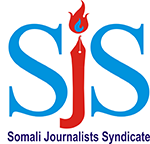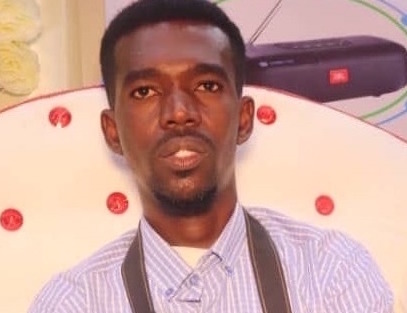Amnesty International is concerned about the continued detention of journalist Mohamed Abdiwahab Nur (Abuja) and the organization is calling on Somalia authorities to immediately and unconditionally release him. Amnesty International is also worried that the journalist who was arbitrarily arrested and detained on 7 March2020 by the National Intelligence and Security Agency (NISA) is now at heightened risk in overcrowded detention conditions due to the COVID-19 pandemic.
On 29 February2020, NISA officials arrested and detained Mohamed Abdiwahab Nur (Abuja), an editor at Radio Hiigsi in a NISA detention facility in Mogadishu. He was later released on 2 March 2020 without charge. Abuja’s father Abdiwahab told Amnesty International that his son was ill-treated while he was in detention.
Abuja was re-arrested by NISA officials on 7 March 2020 and was held incommunicado without access to family and lawyers and without being presented in court until 7 June 2020. On that day, he was secretly taken to a military court in Mogadishu without the knowledge of his family and without a lawyer. According to his lawyer, the journalist was not formally charged at the military court and NISA officials requested more time to complete investigations. The military court ordered the journalist to be transferred to Mogadishu Central Prison where he remains detained. His lawyer met him for the first time on 8 June 2020 at Mogadishu Central Prison.
After social media outrage and protests by journalists in the capital Mogadishu over the continued detention of the journalist, the Ministry of Information, Culture and Tourism issued a statement on 22 April 2020 claiming that the journalist was detained by security agencies and was under investigation for Al-Shabab membership and murder.
Contrary to the claims by the Ministry of Information, Abuja’s father, his lawyer and media advocates told Amnesty International that they believe the journalist was arrested over an editorial piece criticizing security forces in Mogadishu that he published on 26 February2020. In the editorial piece, which was reviewed by Amnesty International, the journalist criticizes the conduct of security forces in Mogadishu and raises questions over security forces’ excessive use of force on the people in the city. His father also said he believes that his son is being unfairly targeted because he is from a minority clan and does not have influential politicians who can advocate for him.
On 15 June2020,two media advocates, his father and one of his lawyers visited Abuja at Mogadishu Central Prison where he is detained. One of the media advocates who met with Abuja told Amnesty International that he was in good spirits but complained of severe headache and pain in his eyes and said that he needed urgent treatment and access to medical care. The journalist also complained of overcrowding in the cell saying that he is detained with 189 others in a small cell and that he is facing difficulties accessing water and sanitary items.
His lawyer Dahir Mohamed Ali told Amnesty International that they have repeatedly asked the military court to inform them of the charges against Abuja, but they are yet to do so.
President Mohamed Abdullahi Mohamed “Farmajo” had on 3 May, publicly committed to reform the old and outdated 1962 Penal Code that is often used against journalists and promised to support the right to freedom of expression and decriminalize media and journalism. The continued detention of journalist Abuja undermines the right to freedom of expression and media freedom and runs contrary to that commitment.
The Government of Somalia is required both under international human rights law and under its domestic laws to respect, protect, promote and fulfill human rights, including the right to freedom of expression and media freedom. Independent journalists like Abuja play a critical role informing the public about government policies and exposing human rights violations and abuses. They need to be protected and not targeted with imprisonment and other forms of harassment and intimidation.


